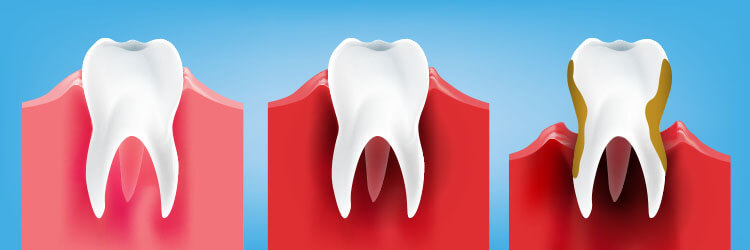Definition
Gum Disease is an infection of the tissues that hold your teeth in place. It’s typically caused by poor brushing and flossing habits that allow plaque to build upon the teeth and harden. There are three stages of gum disease, gingivitis, periodontitis, and advanced periodontitis.
Signs & Symptoms
Gum disease can be painless, so it is important to be aware of any of the following symptoms:
- Pus surrounding the gums and teeth
- Loose teeth
- Bad breath or bad taste in mouth
- Receding gums (moving away from the tooth)
- Swollen, red, tender or bleeding gums
Treatment and Prevention
The main aim of treatment is to clean out bacteria from the pockets around the teeth and prevent further destruction of bone and tissue. Give your dental hygienist a call today to schedule your professional cleaning and check-up. It is very important to visit your dentist every six months to prevent tooth decay and disease. For your at-home oral health routine, be sure to brush and floss your teeth twice a day.




